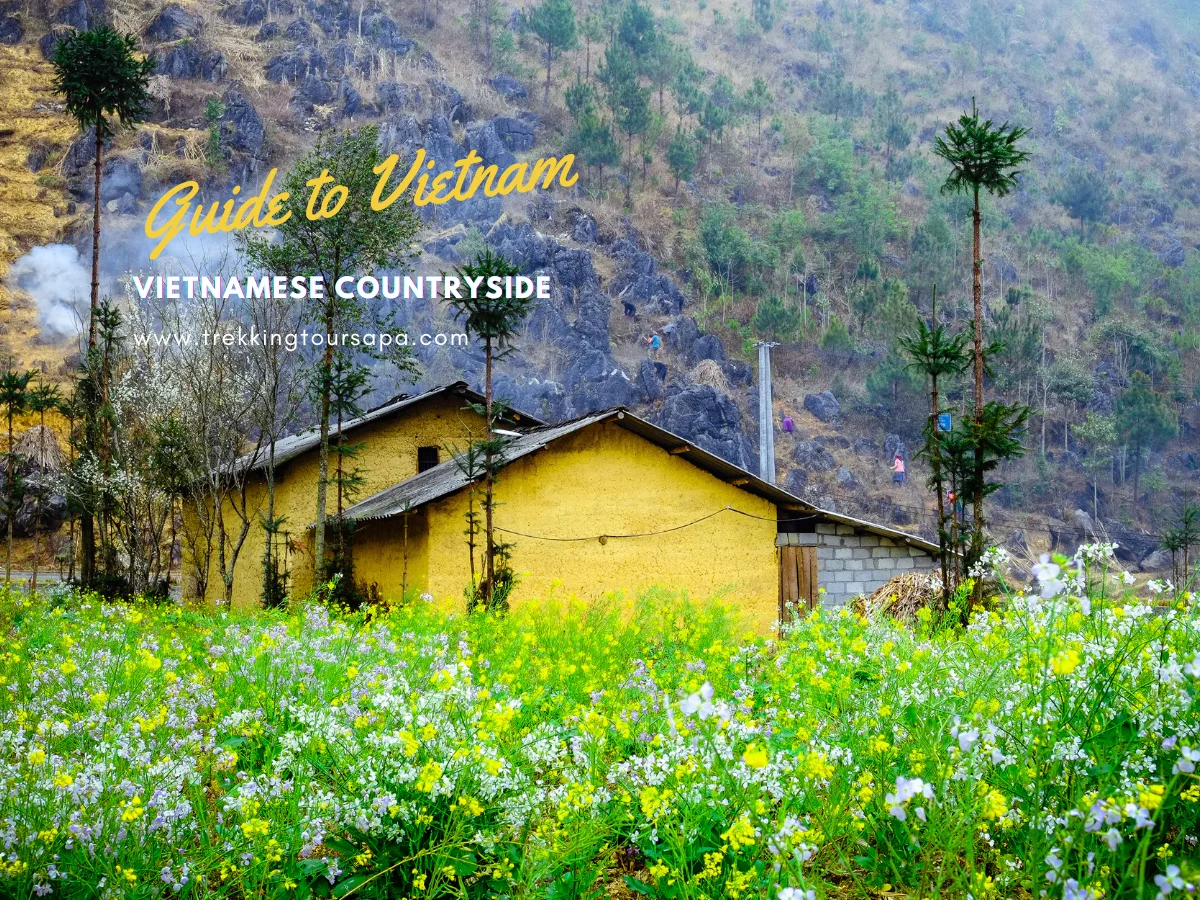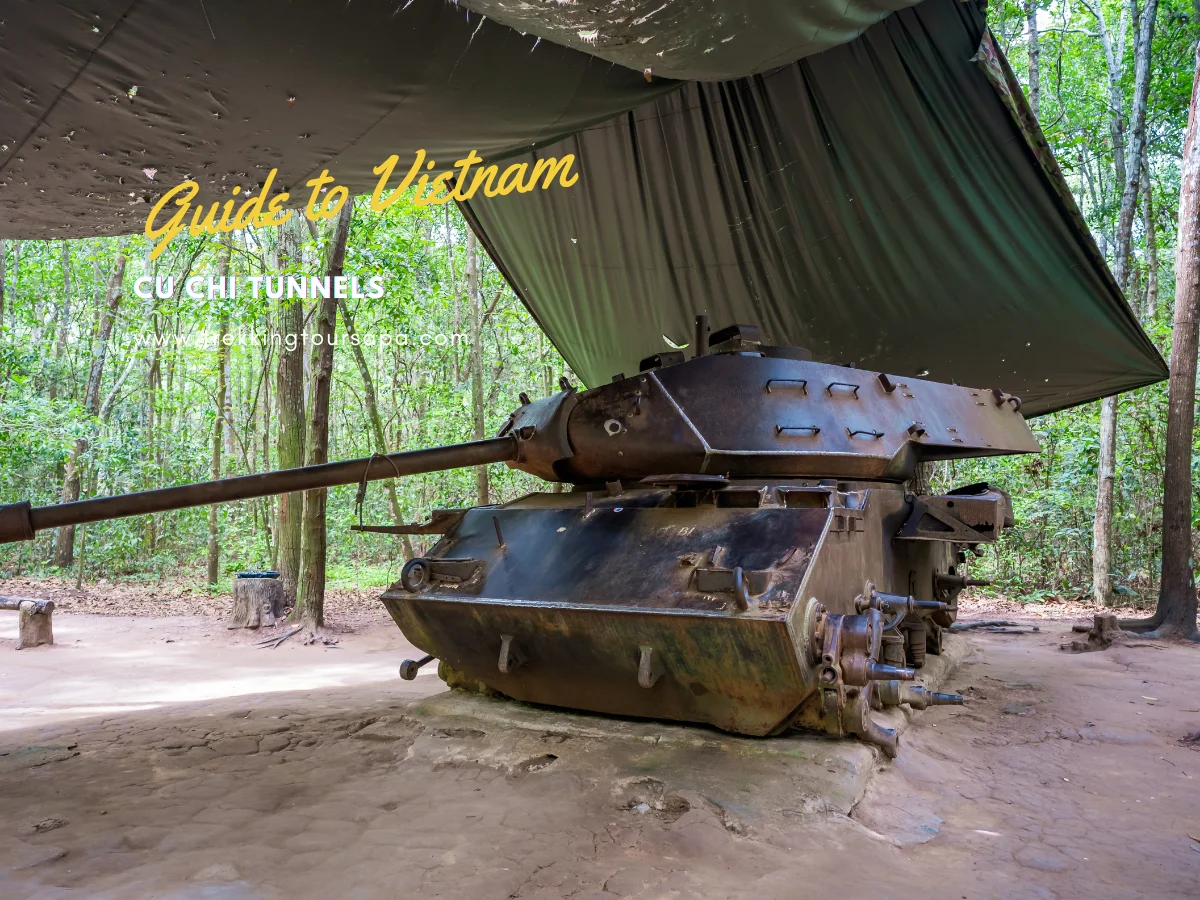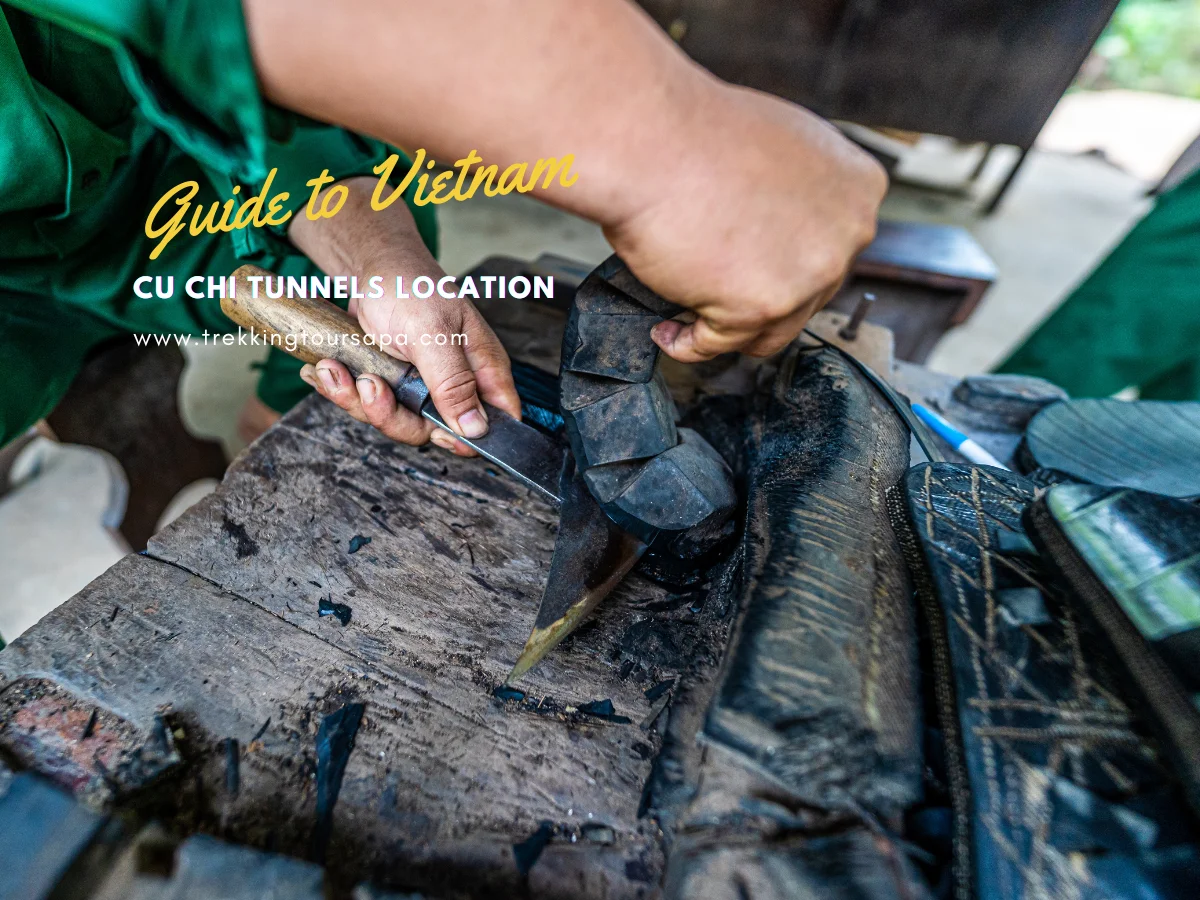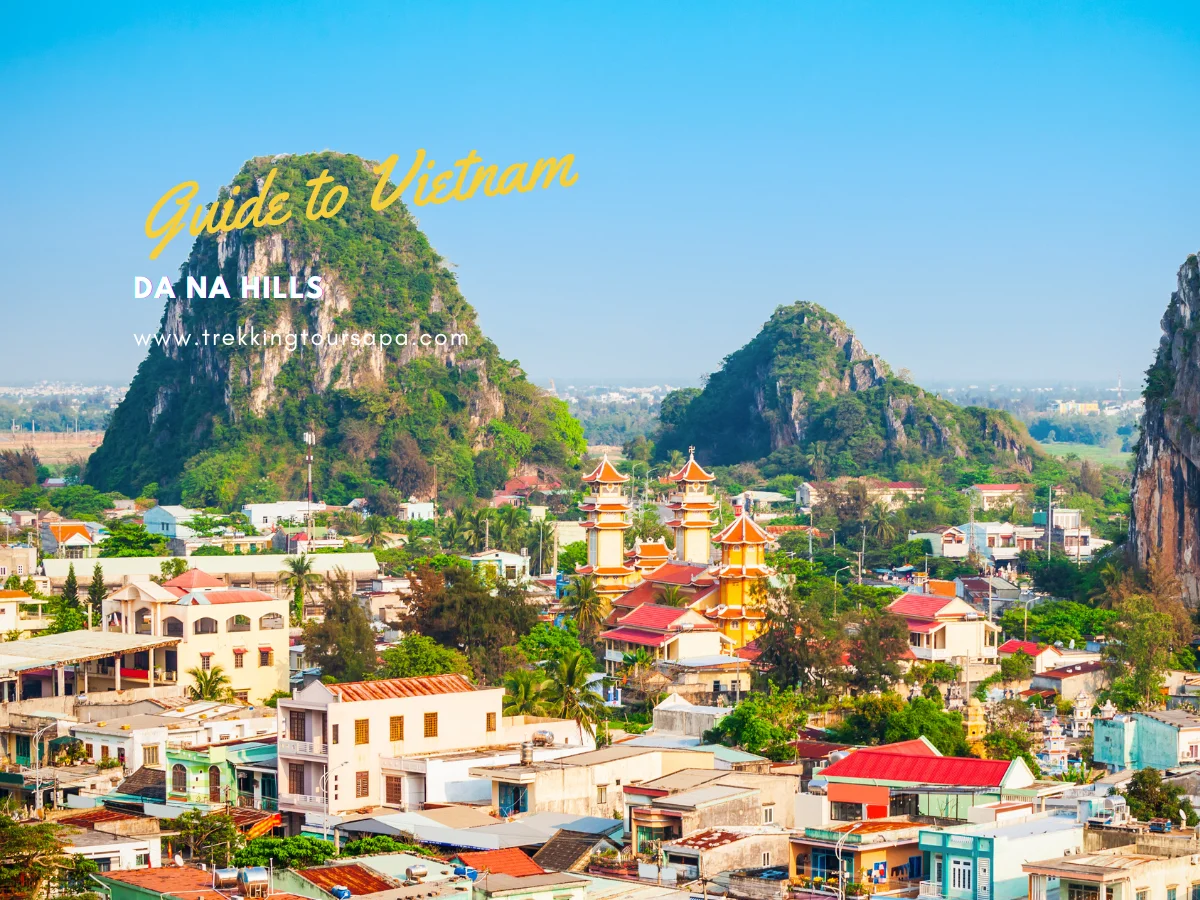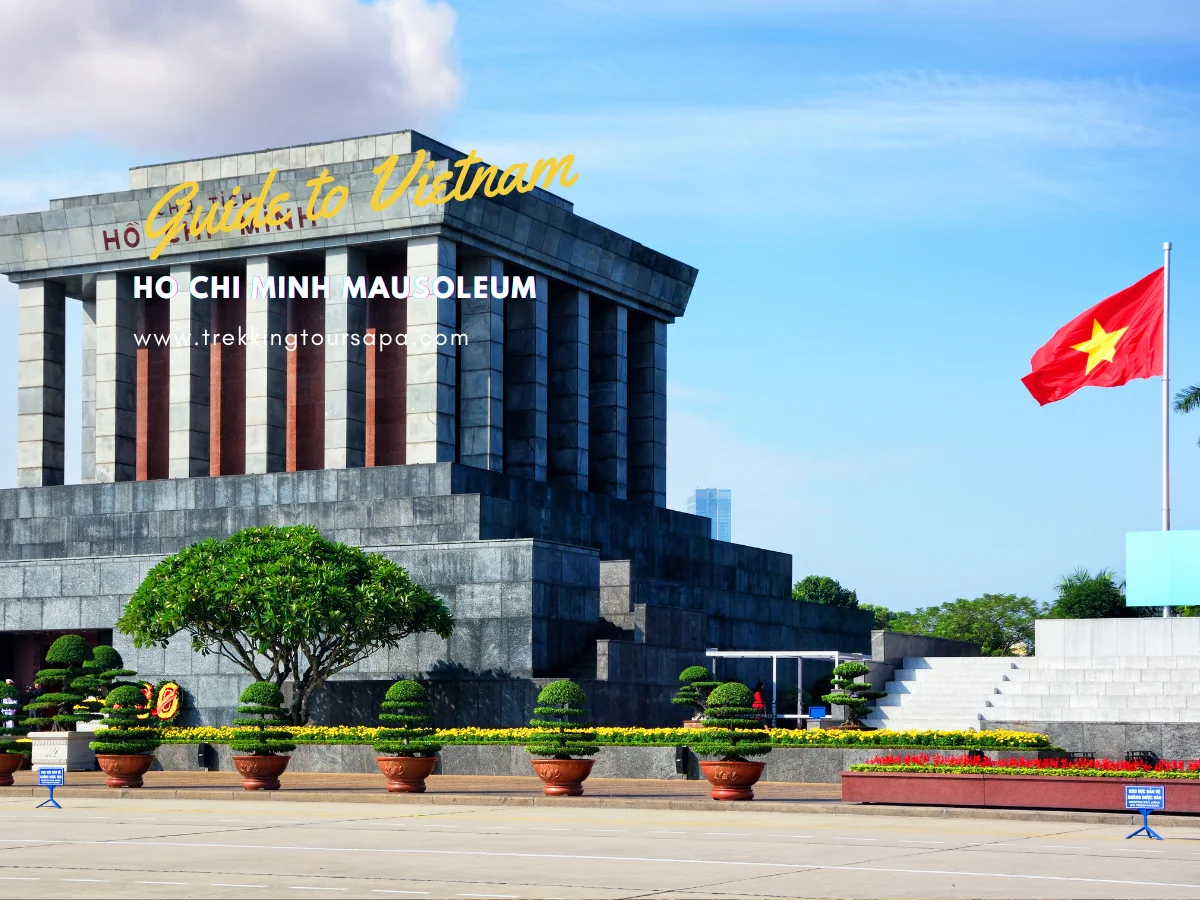In the heart of Southeast Asia, the Vietnamese countryside is a magical place. It’s where old-world charm meets lively traditions. The area is filled with stunning terraced rice fields and green valleys, a beautiful contrast to busy cities.
Here, we can see the real beauty of rural Vietnam. It’s not just about the views. It’s also about the genuine farming ways and the people who live here.
The countryside is full of wonders. Places like Sapa and Hoi An are famous for their beauty and culture. In Dalat, greenhouses grow in the cool air, showing off the area’s agricultural beauty.
Let’s explore rural Vietnam together. Every turn reveals more about the land and its people.
Vietnamese Countryside Key Takeaways
- The Vietnamese countryside offers a unique blend of traditional farming and stunning landscapes.
- Destinations like Sapa, Hoi An, and Dalat showcase the diverse beauty of rural Vietnam.
- Travelers can engage authentically with local communities and traditions.
- Responsible tourism practices support sustainable growth in rural areas.
- The countryside landscapes provide endless opportunities for exploration and photography.

Table of Contents
ToggleIntroduction to Vietnam’s Countryside
The countryside of Vietnam is a world where rural landscapes blend perfectly with Vietnamese culture. It’s more than just a pretty view; it’s a key part of Vietnam’s identity. Here, we dive into the lasting traditions and lively practices that make rural life special.
When we explore Vietnam’s vast, untouched lands, we find many landscapes to explore. Places like Sapa’s misty mountains and the calm Mekong Delta waters offer endless countryside exploration chances. Each spot offers a unique way to connect with nature and the people who live there.
As we delve deeper into these rural spots, we see the variety of ethnic groups and traditions. The rhythm of daily life echoes in the fields and in local songs. It’s an experience that links us to Vietnam’s heart.
The Allure of Rural Vietnam
Rural Vietnam’s charm wins our hearts with its beautiful landscapes and lively cultures. We’re drawn to the traditional ways of life in the stunning fields and calm rivers. The Hmong and Dao ethnic groups add to the region’s beauty, letting us see real customs and colorful festivals.
In rural areas, we see local traditions mixed into daily life. Each village shows us a piece of history, with old farming, crafting, and cooking ways. These traditions show the country’s ethnic diversity and create a strong sense of community.
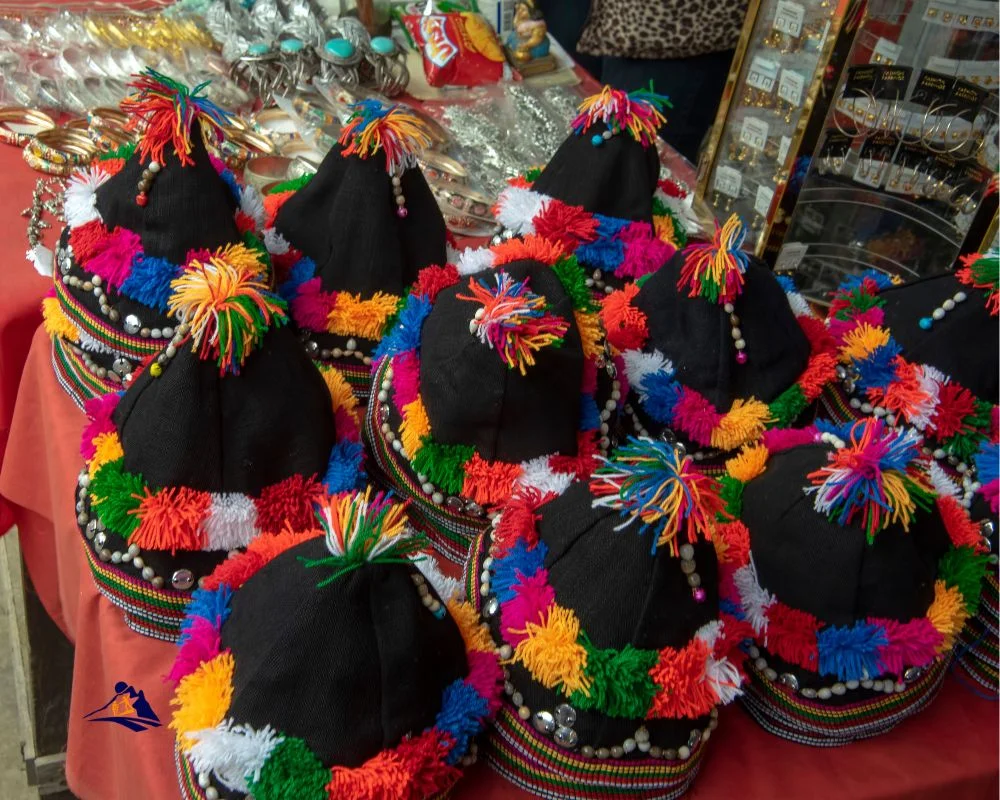
The locals’ warm welcome makes our trip special. We share meals, learn crafts, and understand local customs passed down through generations. This connection makes our journey unforgettable.
Exploring these experiences, we value the mix of nature and traditional life. The green rice paddies and vast mountains invite us to discover rural Vietnam’s essence. With every visit, we grow to love the vibrant cultures and traditions that make this place unique for those seeking adventure and connection.
Exploring Famous Destinations
Vietnam’s countryside is full of adventures and beautiful views. Each area has its own landscapes and traditions. This makes Vietnam a top choice for those looking for real experiences.
From the stunning terraced rice fields in Sapa to the lively Hoi An culture and the lovely Dalat farms, Vietnam’s diversity is its charm.
Sapa: Iconic Terraced Rice Fields
Sapa is known for its amazing terraced rice fields. These fields go down the mountains, creating a stunning view. As we explore, we see how the fields change with the seasons.
The local Hmong and Dao communities add to our experience. They share their customs and traditions, making the landscape even more beautiful.
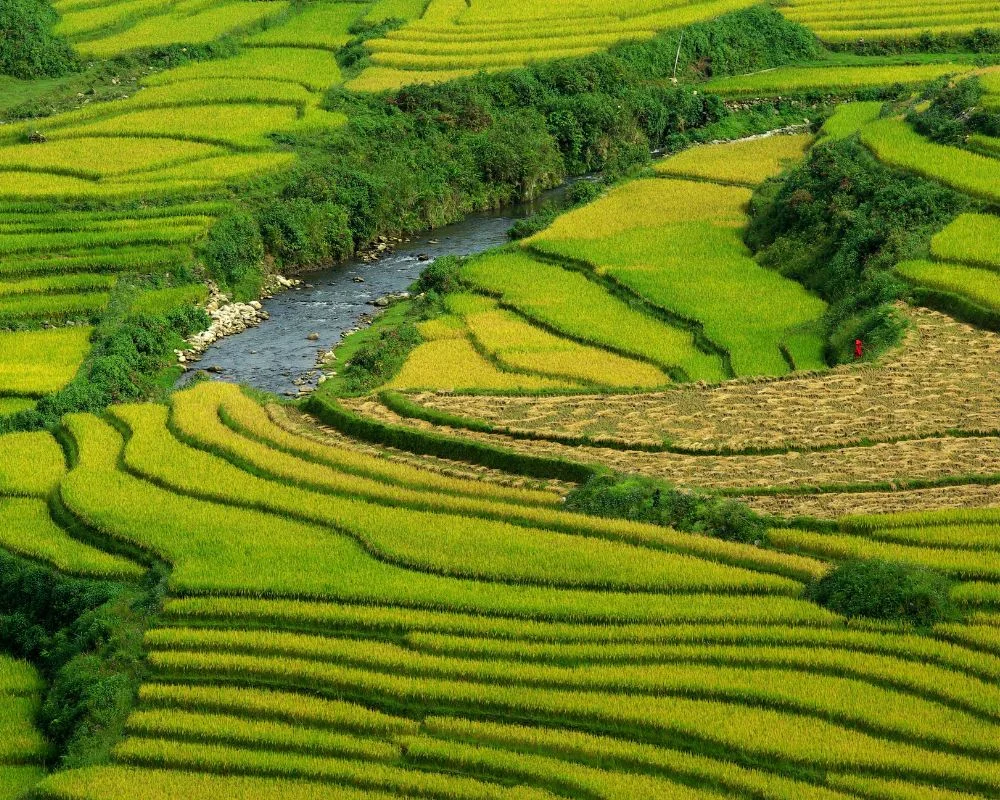
Hoi An: A Blend of Culture and Nature
In Hoi An, history and nature come together. This UNESCO World Heritage site is a mix of preserved buildings and natural beauty. It’s a top spot for those who love culture.
We can cycle through beautiful rice paddies and try traditional cooking classes. These experiences celebrate Hoi An culture and leave us with memories and new skills.
Dalat: Greenhouses and Flower Farms
Dalat is called the “City of Eternal Spring” for its cool weather and stunning views. It’s famous for its flower farms and coffee plantations. This place is a must-see for those who love the countryside.
Exploring Dalat farms lets us see how farming works in this special place.
Using a reliable travel agency like Travel Agent Hanoi makes our journey smooth. We get insights from local experts. Let’s discover the wonders of Vietnam’s countryside together.
Sapa 1 Day Tours
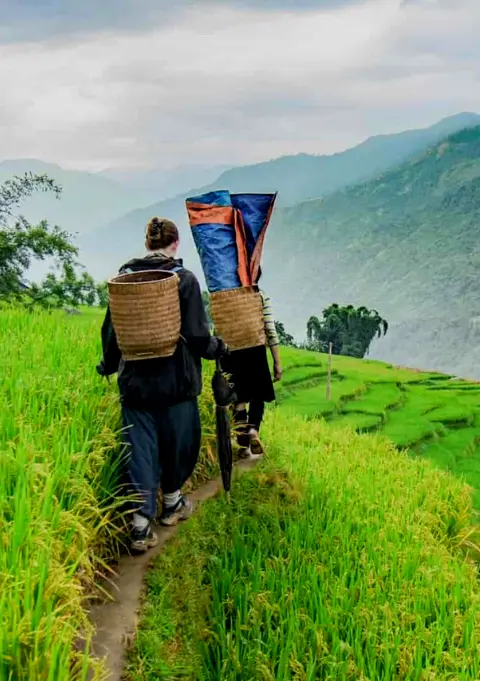
- 1 day experience
- Moderate to challenging
- Cultural immersion & active adventure
- Rice fields, valleys & villages
- Private tours
- Vegan-friendly
Sapa 2 Day Tours
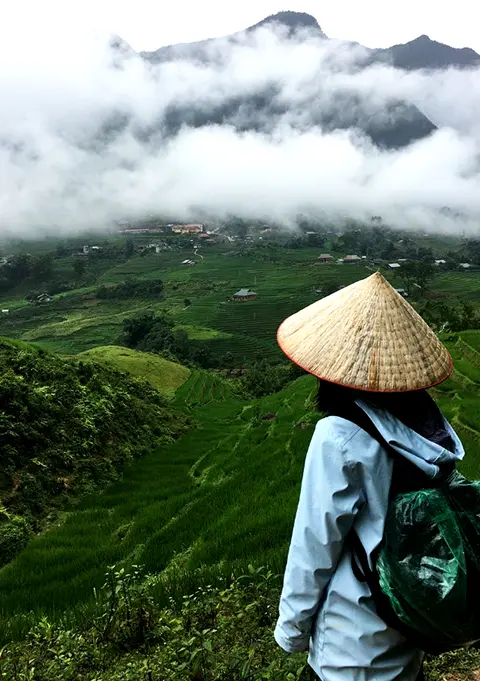
- 2 days 1 night experience
- Moderate to challenging
- Cultural immersion & active adventure
- Mountains, valleys, rice fields and villages
- Private tours
- Vegan-friendly
Sapa 3 Day Tours
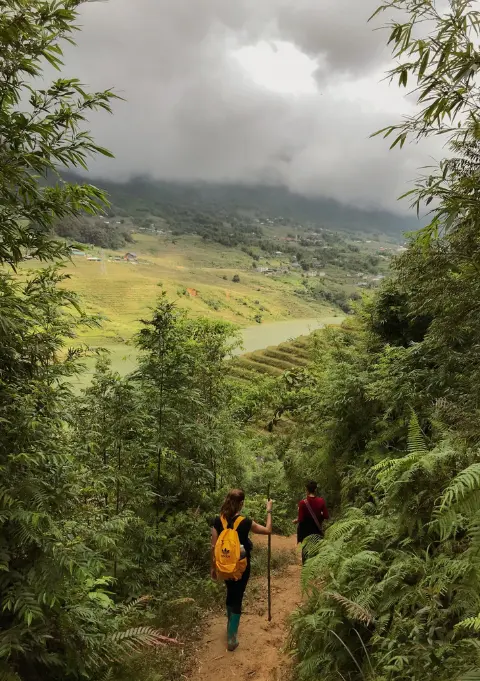
- 3 days 2 night experience
- Moderate to challenging
- Cultural immersion & active adventure
- Mountains, valley, rice fields & villages
- Private tours
- Vegan-friendly
Sapa 4 Day Tours
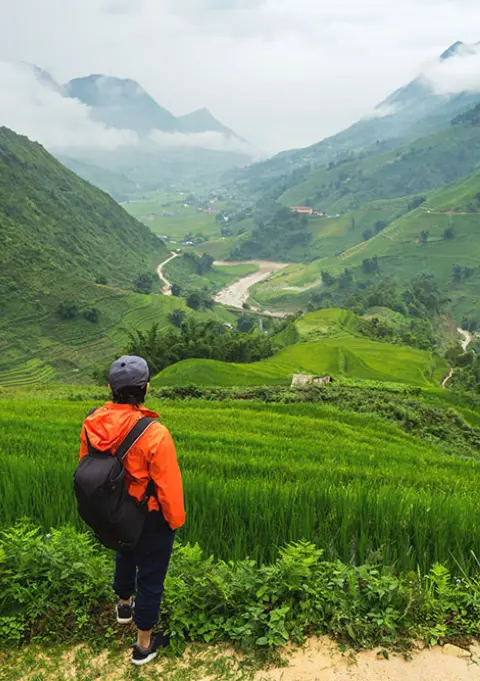
- 4 days 3 night experience
- Moderate to challenging
- Cultural immersion & active adventure
- Mountains, valleys, rice fields & villages
- Private tours – Less Touristic
- Vegan-friendly
Traditional Village Life in Vietnam
Exploring village life in Vietnam opens a window into rural communities’ hearts. Places like Bat Trang and Van Phuc show how nature and architecture blend. This creates beautiful landscapes that reflect cultural identity.
Here, we see artisans like potters, silk weavers, and hat makers. They pass down their skills through generations, keeping traditions alive.
In these towns, community spirit is strong. Villagers support each other in work and celebrations. Festivals highlight their pride and joy, showing off traditions and architecture.
Visiting places like Quang Phu Cau and Dao Thuc lets us see unique arts. We get to see craftsmanship up close and share in cultural exchanges. This deepens our understanding of Vietnamese culture’s diversity.
For more insights, check out The Traditional Village in Vietnam. It dives deep into these special places. From Quat Dong’s embroidery to Vong Green Young Sticky Rice Making Village, Vietnam’s countryside is full of stories.
| Village Name | Specialty | Notable Aspects |
|---|---|---|
| Bat Trang | Pottery | Over 600 kilns, 500 years of history |
| Van Phuc | Silk | Renowned for luxurious silk products |
| Chuong | Conical Hats | High quality craftsmanship, iconic design |
| Quat Dong | Embroidery | Exquisite designs reflecting culture |
| Dinh Cong | Jewelry | Intricate silver and gold pieces |

Experiencing the Vietnamese Countryside
Visiting the Vietnamese countryside reveals a world full of vibrant culture and stunning scenery. We can take part in many countryside activities that make our trip unforgettable. Immersion travel becomes real as we connect with the rich traditions and daily lives of local communities.
Unique Activities in Rural Areas
Travelers can enjoy a wide range of unique activities in Vietnam’s rural areas. Here’s a look at what awaits those eager to explore:
- Rice Planting – Learn the traditional way of planting rice with local farmers. This hands-on activity gives us a peek into Vietnamese agriculture.
- Water Buffalo Riding – See the countryside from a new angle by riding a water buffalo. This is a traditional way of travel for many locals.
- Learning Traditional Crafts – Work with artisans to learn about weaving, pottery, or cooking traditional dishes. These experiences help us appreciate Vietnam’s cultural heritage.
Engaging with Local Communities
Engaging with local communities makes our travel experience even better. By spending time with residents, we build real connections and understand their culture better. Key aspects of local engagement include:
- Joining community festivals and celebrations to see authentic cultural practices.
- Staying in homestays, like the Qua Cam Tim Homestay in Hoi An, where we can enjoy home-cooked meals and connect with families.
- Going on guided tours that focus on small groups and local guides. This ensures sustainable and respectful engagement.
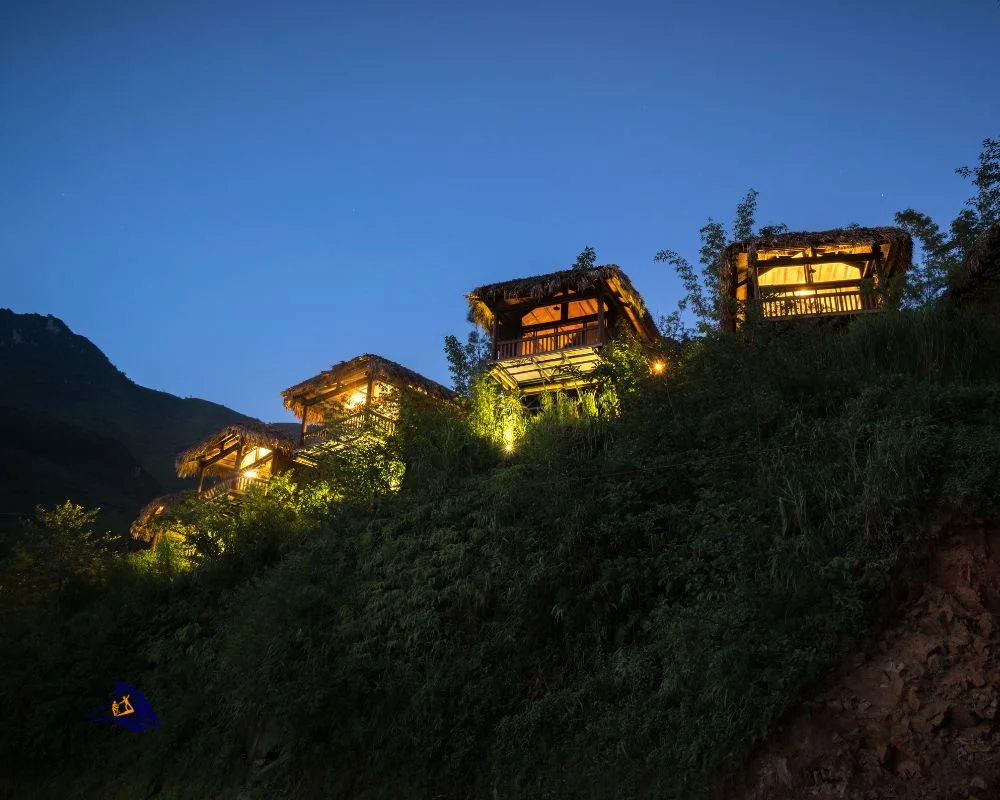
These experiences not only make our journey richer but also support the communities we visit. With every activity, we help the local economy while diving into Vietnam’s countryside. Exploring rural Vietnam gives us wonderful memories and a deeper understanding of its people and culture.
Countryside Scenery: A Feast for the Eyes
Vietnam’s countryside is a feast for the eyes. It has rolling hills and green rice paddies. These landscapes invite us to see a world where nature is the king.
As we explore these places, we see stunning views. Tranquil rivers reflect the sky, and mountains frame the horizon. These sights not only amaze us but also bring peace.
Let’s look at some experiences in these rural areas:
- Visiting an 800-year-old village helps us understand community heritage.
- Exploring a 200-year-old traditional house shows off stunning architecture.
- Discovering Red River Island reveals vibrant farming practices.
- Encountering the Co Loa Citadel Temple adds to our historical knowledge.
We invite you to dive into these landscapes. They show the beauty of Vietnam’s countryside. Our journey connects us with the essence of this enchanting place.
| Experience | Description |
|---|---|
| 800-Year-Old Village | A tour that explores the deep-rooted traditions and the longevity of community life. |
| 200-Year-Old House | Insights into historical architecture, reflecting the cultural heritage of the region. |
| Red River Island | A showcase of banana and vegetable farming, vital to the local agricultural focus. |
| Co Loa Citadel Temple | An exploration of a significant historical landmark dating back to 300 BC. |
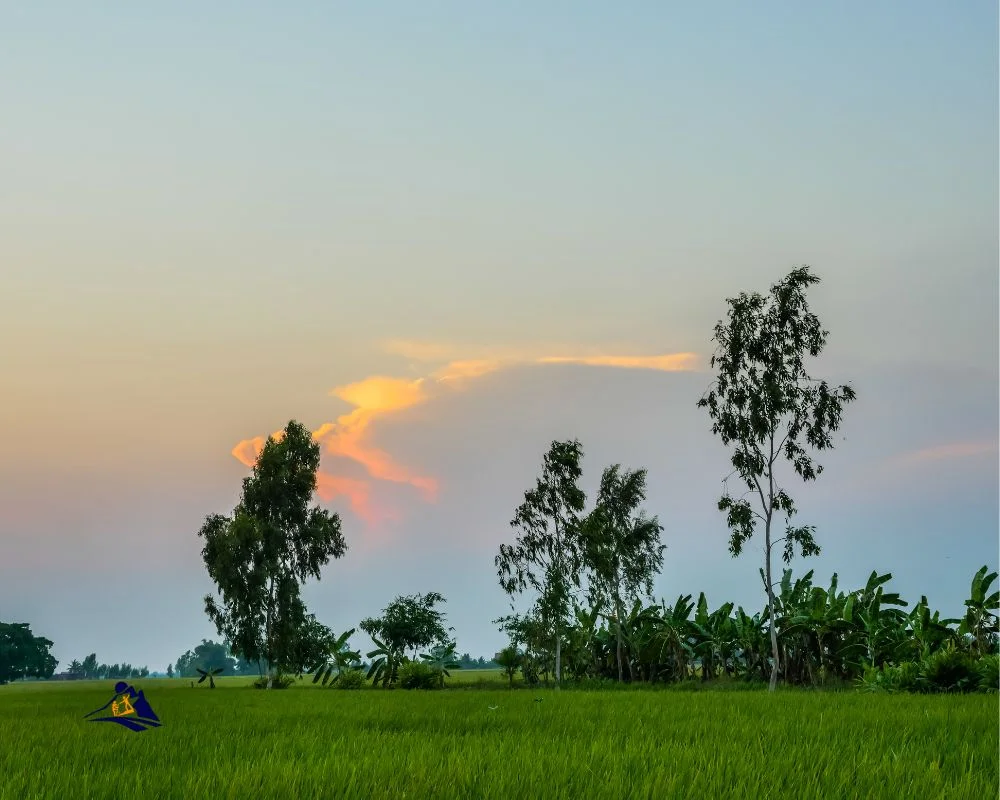
Agricultural Landscapes of Vietnam
The agricultural landscapes of Vietnam are a mix of natural beauty and cultural importance. Rice cultivation is a key part of our heritage. It’s not just a food source but also a way of life for many.
Every year, the countryside comes alive with terraced rice paddies. These fields show the hard work and dedication of farmers. They have perfected their skills over many years.
Rice Paddies and Farming Practices
Walking through the fields, we see the detailed work in rice cultivation. This is a vital part of Vietnamese food. The Mekong Delta is known as the “rice bowl” of the nation.
The rice fields are a sight to see, especially during planting and harvesting. The fields turn from green to golden, creating a beautiful scene.
Exploring Tea and Coffee Plantations
Vietnam also has tea and coffee plantations, like those in Dak Lak. Here, we dive into the world of Vietnamese coffee. Dak Lak is a big player in Vietnam’s economy, thanks to its coffee.
Visiting these plantations, we learn about the effort that goes into every cup. We meet local farmers who share their knowledge and stories.
Vietnam is focusing more on agricultural tourism. It has 584 models and 20 pilot projects until 2025. But, there are still challenges like marketing and professionalism.
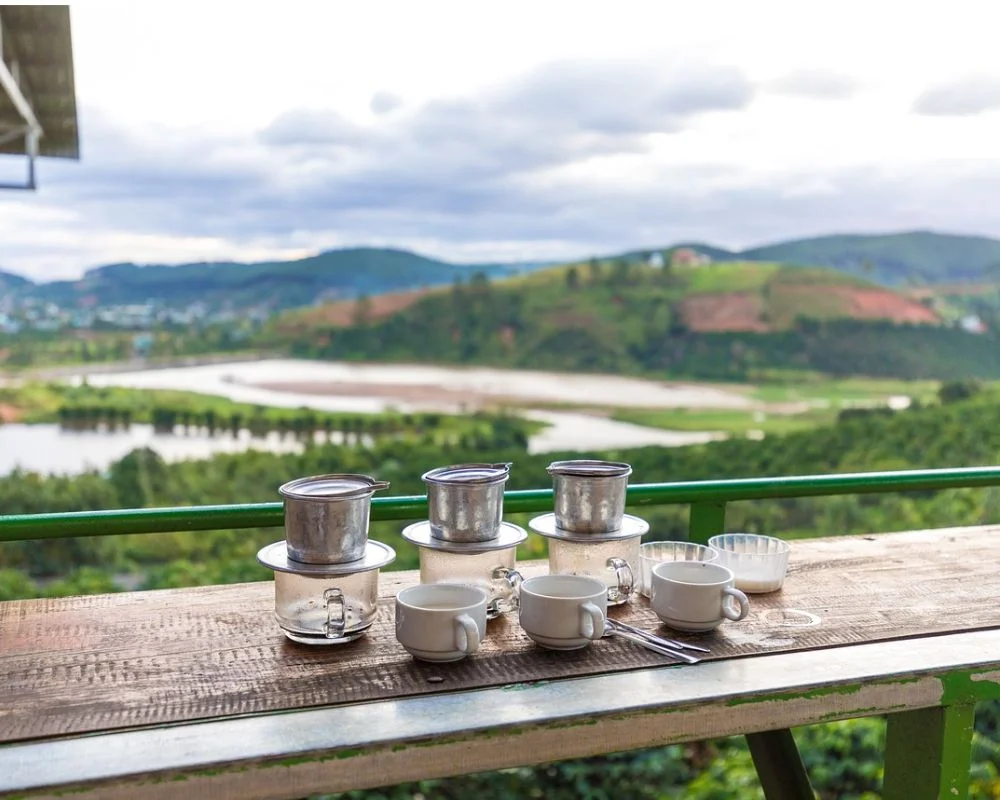
The rich heritage of agriculture in Vietnam is based on sustainable practices. It preserves cultural traditions and offers unique experiences.
Experience the wonders of ricepaddies and coffee plantations in Vietnam
The Serenity of the Mekong Delta
The Mekong Delta is a magical place where calm waterways meet lively landscapes. It’s a world full of diverse ecosystems and rich culture. We can enjoy memorable moments gliding on the rivers, surrounded by greenery and colorful fruits.
Cai Rang Floating Market is a highlight in Vietnam. Here, we see a bustling barter system on boats full of fresh goods. It’s a mix of shopping and friendship, filled with laughter and delicious smells.
Ben Tre Province is famous for its fruit orchards. You can try unique fruits like durian and mangosteen. The locals are friendly and welcoming, making every visit special.
In An Giang Province, we find historical sites like Thach Dong Cave Pagoda. It shows the area’s past and present beauty. We also get to try local foods like Bun Mam and Banh Cong.
Cần Thơ city is the heart of the delta. At Ninh Kieu Wharf, we see stunning sunsets over the Song Hau River. The colors from nearby gardens add to the beauty, making it a perfect spot to relax.
The Mekong Delta is more than a place to visit. It’s a mix of experiences that show the true Vietnamese way of life. Here, we find peace, culture, and unforgettable moments in this beautiful region.
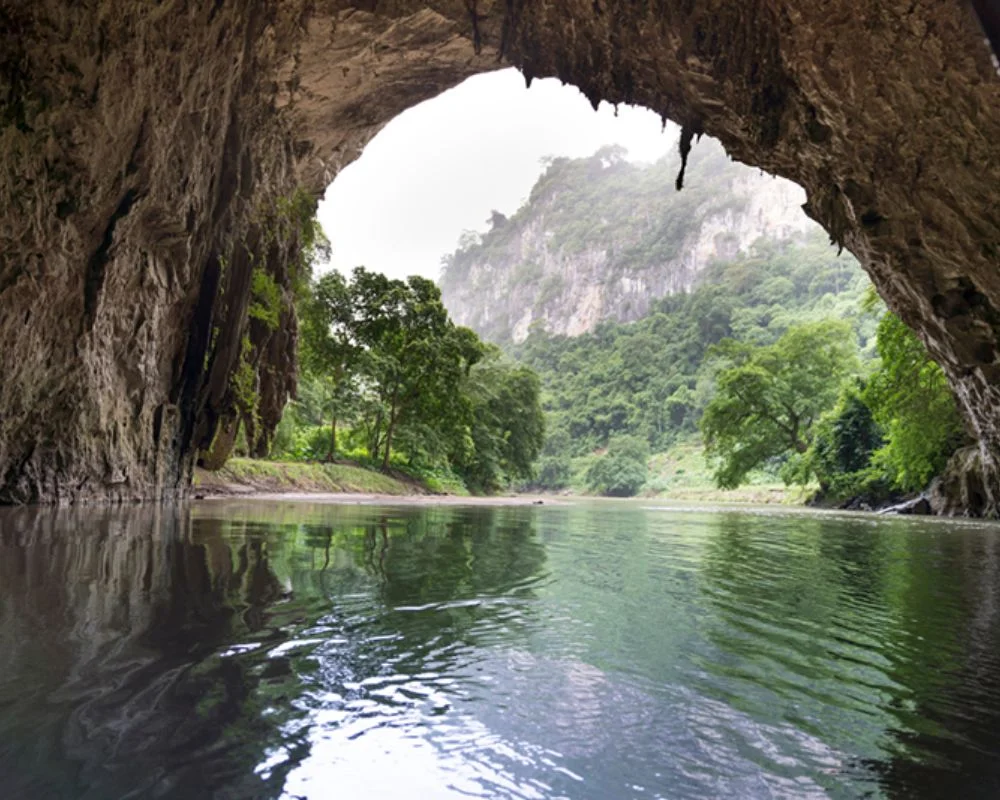
Immersive Experiences in Vietnam Villages
Exploring Vietnam’s villages lets us dive into rich cultural experiences and local traditions. Our trip through the countryside connects us with Vietnam’s vibrant culture. We get to see firsthand how the locals live.
We can help with rice harvesting or learn traditional weaving from artisans. These activities help the local economy and teach us about their heritage. We also get to join in on craft workshops, festivals, and cooking classes.
The beauty of Vietnam’s villages is unforgettable. We visit dragon fruit farms and enjoy sunset cruises. These moments make our connection to the local traditions strong.
Our tours and guided experiences reveal Vietnam’s countryside’s hidden treasures. We get to experience the warmth and hospitality of the communities. Whether trekking in Sapa or trying local food, these experiences leave a lasting impact on our travels.
Culinary Delights of the Countryside
Exploring the Vietnamese countryside reveals a world of culinary wonders. It shows the rich cultural tapestry of the nation. We can dive into the tastes and flavors that make Vietnamese cuisine special.
Market Fresh Ingredients

The vibrant markets in rural areas are filled with fresh ingredients. As we walk through, the colors and aromas attract us. They highlight seasonal produce and local specialties.
Staples like herbs, vegetables, and fresh proteins are key. They make dishes like pho and bun cha famous. For example, a bowl of beef pho is a symbol of Vietnam’s culinary identity. It costs only $2 to $4.
Traditional Cooking Classes
Traditional cooking classes let us take a piece of Vietnamese cuisine home. Experienced chefs teach us how to make iconic dishes. We learn to work with fresh ingredients from local markets.
Whether it’s making goi cuon or cao lau, these classes are both fun and educational. We learn the secrets of rice noodles and perfect banh mi, starting at just $1. This experience deepens our appreciation for Vietnamese culture and lets us enjoy our creations.
Responsible for Adventuring in Remote Areas
Traveling through Vietnam’s beautiful landscapes lets us learn about responsible tourism. We should focus on sustainable tourism. This way, we can enjoy our adventures and help the community at the same time.
Exploring remote areas helps local economies, especially through homestays. These places let us truly connect with rural communities. By staying with locals, we learn about their culture and help their families.

When we visit markets, we should bargain fairly. This supports small vendors and makes our trip better. Also, places like Bloom Microventures and KOTO Restaurant in Hanoi help marginalized groups. They show us how to travel responsibly.
Northern Vietnam is great for outdoor lovers, with many trekking paths. These paths let us see hill tribes and ethnic minorities. Prices for these adventures range from US $874 to US $6,120, with discounts on certain dates.
It’s important to be careful around wildlife, like elephants. We must avoid supporting the illegal wildlife trade. Knowing this helps us be better travelers.
By choosing sustainable tourism, we can enjoy Vietnam’s countryside. This way, we help keep it beautiful for others in the future. Together, we can make a big difference in communities and have amazing travel experiences.
Understanding the Cultural Heritage
Vietnam’s culture is rich, dating back over four thousand years. It’s older than many cultures around the world. The countryside is home to many ethnic groups, each with their own traditions and colorful costumes.
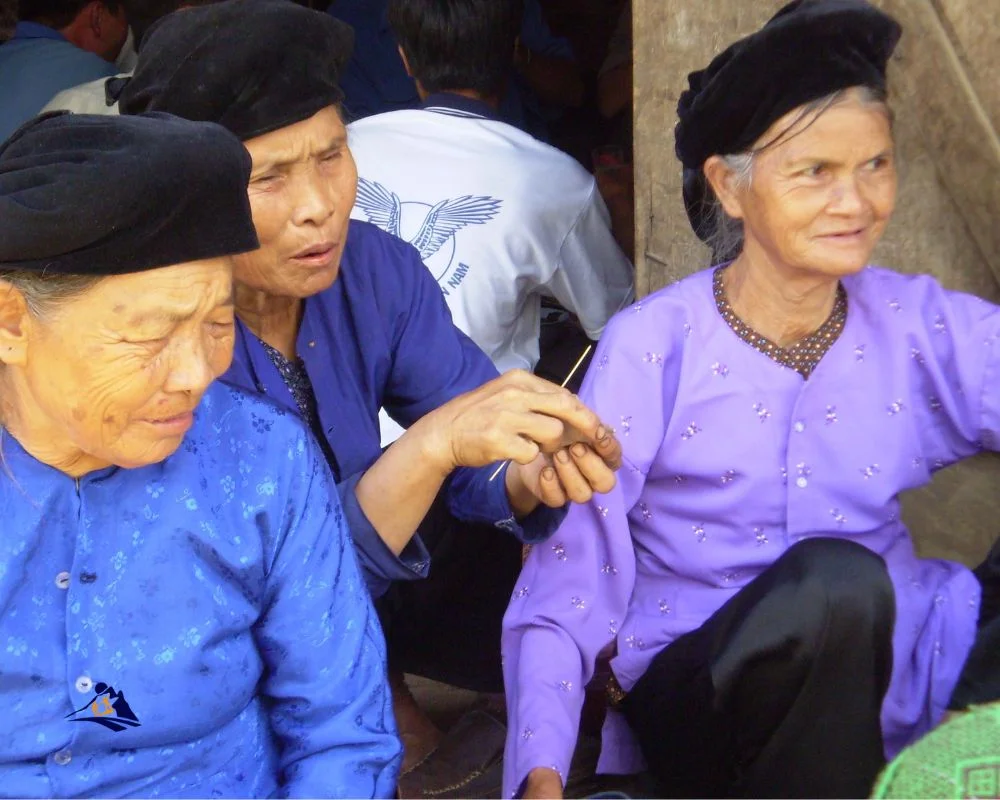
The Kinh (Viet) people make up 85.7% of the population. But it’s the smaller groups like the Tay, Tai, Mường, and Hmong that add depth to Vietnam’s culture. Their festivals celebrate ancestral worship, farming, and stories from the past.
Traditional music is a big part of Vietnam’s culture. There are over 50 national instruments, each with its own sound. Village help shows the strong community spirit, helping families stay strong.
Family is very important in Vietnam. Often, many generations live together. Showing respect to elders is key, showing our gratitude for their wisdom.
Even with modern changes, traditional ways are still valued. Food is a big part of our culture, connecting generations. Meals honor farmers and the land, showing our respect.
The Vietnamese are always looking forward, yet they also value their past. This mix of optimism and tradition keeps our culture alive and vibrant.
| Ethnic Group | Population Percentage | Traditional Costume |
|---|---|---|
| Kinh (Viet) | 85.7% | Ao Dai |
| Tay | 1.9% | Traditional dresses with colorful patterns |
| Tai | 1.8% | Black skirts and embroidery |
| Mường | 1.5% | Simple and practical clothing |
| Khmer Krom | 1.5% | Scottish-inspired garments |
| Hmong | 1.2% | Vibrant embroidered attire |
| Nung | 1.1% | Traditional colorful wraps |
| Hoa | 1% | Chinese-style clothing |
| Others | 4.3% | Various traditional costumes |
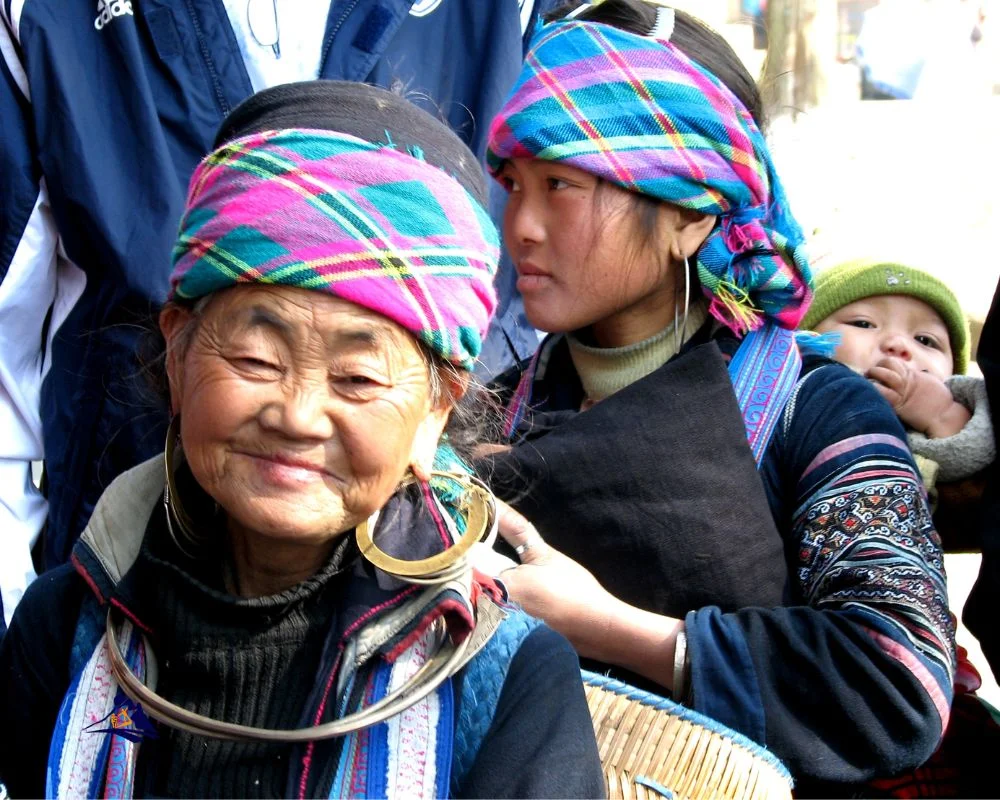
Seasonal Changes in Vietnam’s Countryside
In Vietnam’s countryside, the beauty of each season is a sight to behold. The scenery changes dramatically with the seasons. The north has four seasons, each with its own charm and activities.
When it’s planting time, the fields are covered in green rice paddies. This marks the start of a new cycle in farming. We can join in local farming activities, diving into rural life.
Summer brings heat and changes the landscape. We can enjoy cultural festivals that celebrate harvest time. These festivals add to our experience of Vietnamese culture.
Autumn brings golden hues to the rice fields, ready for harvest. This beautiful scene is not just for our eyes but also for our participation. We can help with harvest activities and join in the festivities.
Travelers can explore the stunning landscapes of Sapa and Ha. Here, we see the beauty of rural transformations in Vietnam.
Winter brings a quiet beauty to the landscape. The cold brings a serene atmosphere. Even though the south has only two seasons, the changes are still felt.
Seasonal changes affect beauty, culture, and farming in Vietnam. Understanding these changes helps us see how rural communities adapt and thrive.
Conclusion
Exploring the Vietnamese countryside reveals a world full of unforgettable moments. From Halong Bay’s breathtaking views to Hoi An’s quaint streets, each place shows Vietnam’s true spirit. We invite you to dive into the lively culture, try the delicious traditional food, and see the strong family ties in rural areas.
Our trip through the countryside lets us connect with local communities and see the natural beauty around us. Enjoying dishes like pho or joining in Tet celebrations reminds us of Vietnam’s rich history and diversity. Let’s share the kindness and hospitality of its people.
Exploring Vietnam’s countryside opens a door to a world of beauty and culture. We encourage you to find your own adventures, make lasting memories, and discover what makes Vietnam special. Are you ready to start your journey through the Vietnamese countryside?
Sapa 1 Day Tours

- 1 day experience
- Moderate to challenging
- Cultural immersion & active adventure
- Rice fields, valleys & villages
- Private tours
- Vegan-friendly
Sapa 2 Day Tours

- 2 days 1 night experience
- Moderate to challenging
- Cultural immersion & active adventure
- Mountains, valleys, rice fields and villages
- Private tours
- Vegan-friendly
Sapa 3 Day Tours

- 3 days 2 night experience
- Moderate to challenging
- Cultural immersion & active adventure
- Mountains, valley, rice fields & villages
- Private tours
- Vegan-friendly
Sapa 4 Day Tours

- 4 days 3 night experience
- Moderate to challenging
- Cultural immersion & active adventure
- Mountains, valleys, rice fields & villages
- Private tours – Less Touristic
- Vegan-friendly
